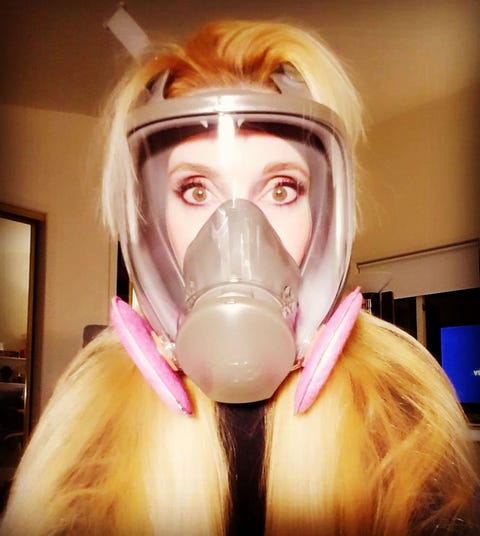Black Mold Slowly Poisoned This Woman for 35 Years
All throughout her childhood, Dana Anhalt grew sicker and sicker, and at 37, she almost lost the ability to walk or use her hands. Sometimes the artist from Huntington, New York, weighed as little as 70 pounds, according to her GoFundMe page.
“I became ravaged by excruciating joint pain,” Anhalt wrote. “My symptom list stretched to four single-spaced pages. I started fading fast as every system of my body broke down.”

Caters News
Her mysterious and severe symptoms stumped doctors for years. They diagnosed her with Common Variable Immunodeficiency (CVID), Lyme disease, Chronic Inflammatory Response Syndrome and Mast Cell Activation Syndrome. Only recently did they identify an important piece of the puzzle.
Anhalt had been living in a home infested with black mold. The fungal growth — along with other chemicals in her environment — set off a rare but terrible reaction. Experts discovered Anhalt had several genetic defects preventing her body from recognizing the foreign substances, causing exponential inflammation and pain.
“The genetic testing was difficult to look at but it was also one of the most of vindicating things I’ve ever seen,” she told Caters News. “Suddenly, decades of my experience made sense.”
According to the Centers for Disease Control, many homes and buildings contain mold, but the most common side effect is hay fever-like allergies, not severe health problems. However, people with respiratory or immunological diseases can experience more serious consequences, like lung infections.
“For the most part, one should take routine measures to prevent mold growth in the home,” the CDC advises. That involves keeping humidity levels as low as possible, ventilating kitchens and bathrooms and cleaning with mold-killing products.

In Anhalt’s case, her medical team advised moving out and leaving most of her possessions behind. “We rushed to find a new apartment and we had to leave all of our belongings, everything I had collected over the years,” she told Caters. “It was devastating.”
Despite her past hardships, Anhalt hopes something positive can come out of her illness. She now plans to advocate for other people with complex medical problems. “Of course, it has been tempting to give up at times,” she said. “Not only do I persevere for the sake of my loved ones, but because I feel I truly have something to give back to the community.”
From: Good Housekeeping US
Source: Read Full Article



